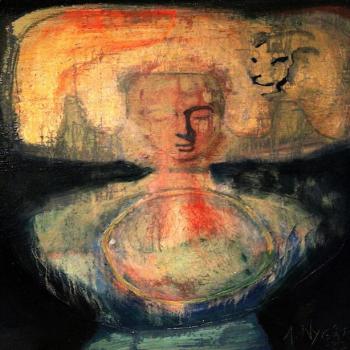Do you remember the book The Shack? It was the story of a man’s journey from personal tragedy to spiritual rebirth, with a key component being his conversations with God, who appeared to him as a black woman. It sold more than 10 million copies after its release in 2007 and was later made into a movie—but it was not without its detractors.
While the book was based loosely on Biblical scripture and was a huge hit with the Christian market, it also had many fierce critics. This included many evangelical leaders who said “it misrepresents God,” included “undiluted heresy,” and was “deeply troubling.” Its author, William P. Young, was labeled a heretic.
As if to double down, Young went on to publish a book in 2017 titled Lies We Believe About God. While I was not a big fan of The Shack, I found many of the “lies” that Young talks about in his new book compelling. While much of the author’s writings are still Biblically-based, he is not beholden to the Bible as the final word, bringing his own sense of humanity and right-and-wrong to his work.
What follows are six of Young’s “lies.” His words, with very minor edits, appear verbatim in standard text, my thoughts follow in italics.
6 Lies We Believe About God
- God is control. How often have we heard the well-intentioned words “It must be part of God’s plan”? What if there is no “plan” for your life but rather a relationship in which God constantly invites us to co-create, respectfully submitting to the choices we bring to the table? We are in control of our own lives. While God, or some higher power, may guide us in our decisions, we must ultimately carve out our own path.
- God is a Christian. If you ask if God is about separation and treats people of different denominations, faiths, and ways of thinking as outsiders until they pray a special prayer to “get in,” then, of course not. Young does believe that Jesus is the way to God, but with his previous statement hedges that sentiment, recognizing that God may not be a Christian. He goes on to say that he is regularly asked if he is a Christian. His usual response: “Would you please tell me what you think one is, and I will tell you if I am one of those.”
- God is a prude. Sexuality is a beautiful and creative force (but) only when it is an expression of agape, which means other-centered, self-giving, committed love. Within a committed and loving relationship, anything goes, as long as it causes no harm and is mutually agreed upon by both parties. (More on agape.)
- You need to get saved. God does not wait for my choice and then “save me.” God has acted decisively and universally for all human kind. Our choice is to grow and participate in that reality or continue to live in the blindness of our own independence. For 99.99% of the people on Earth, there is not a moment where they are “saved.” Rather it is a slow and dawning realization, which may occur over years, that God is with you now and always has been.
- God is not involved with coincidences. There are no chance encounters; detours are usually intended destinations that are simply not on our agenda. In what often appears to be random and exempt from purpose, nothing is apart from the abiding presence and activity of God. Young believes that God speaks in the language of coincidences and it is how he both nudges and steers us. To pick up on these coincidences, we must be fully present in our lives, paying attention to the small signs God gives us, sometimes in our dreams.
- Sin separates us from God. Mistakes are an essential part of being human. Nothing can separate us from the love of God. God is with us always. There is no separation. We are not perfect and we learn from our mistakes. The goal is to continue in a positive direction, using our bad decisions and/or errors in judgements, as tools to learn and grow by, thereby growing closer to God.














